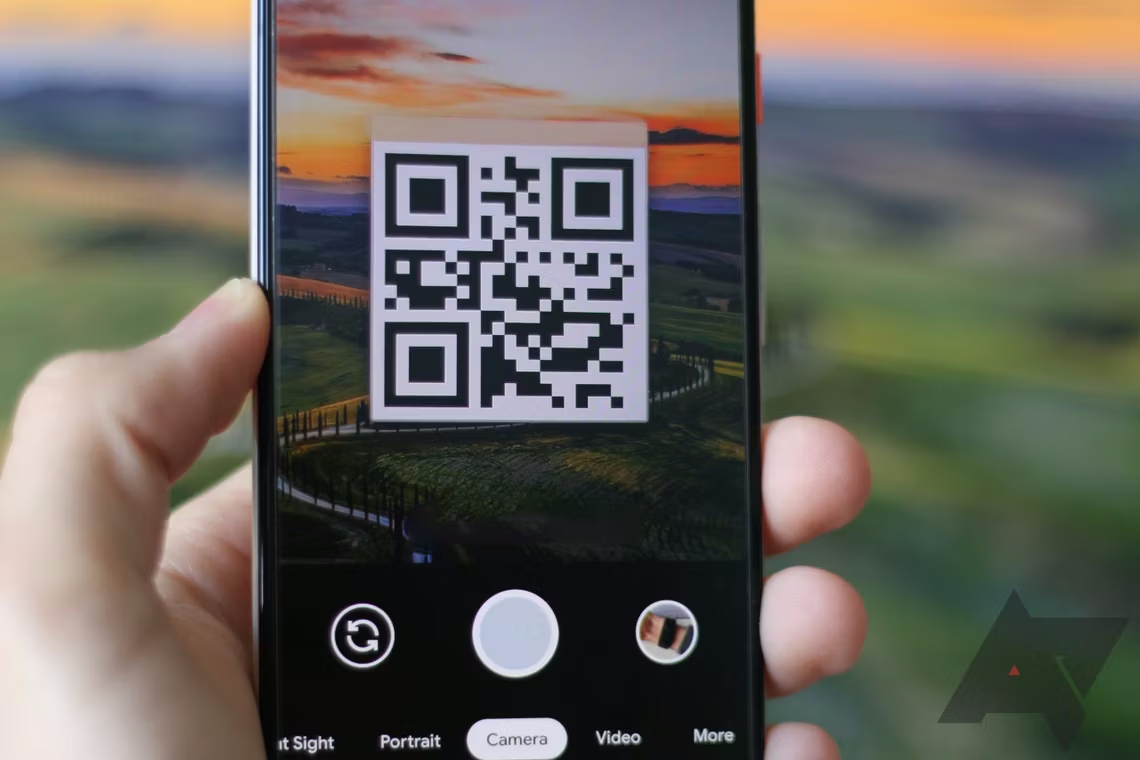WhatsApp’s popularity in the instant messaging space makes it a favorite platform for fraudsters to scam users. WhatsApp cybercrime has increased, costing victims thousands of dollars. Fraudsters use several tricks to trap you and extract your personal and financial details. Keep the points below in mind and look for clues to spot a scam on iPhone and Android so that you don’t become a victim of a WhatsApp scam and lose your hard-earned money.
1 Impersonating as your loved one
It’s the most common way to scam a WhatsApp user. The fraudster impersonates your child, friend, or loved one and sends you a message from an unknown number. The scammer narrates a convincing tale about their broken, stolen, or lost phone to justify a new number and asks you to send money due to an emergency.
The scammer also talks about losing bank access due to a new number and sends new bank account details to send funds. Before transferring funds to an unknown bank account, call the person to confirm their identity. You can also confirm this via video call.
2 Verification code scams
Most people use their phone number as two-factor verification to add an extra layer of security to their social media apps, bank accounts, and more. You may receive a WhatsApp message from a stranger who claims to have mistakenly entered your mobile number and asks for the verification code sent to you.
When you share the verification code, the person may get access to one of your online accounts and lock you out by changing the password. Never share a verification code with a stranger. When you receive such requests, block and report the account on WhatsApp.
3 Free gift cards and vouchers
In another well-known WhatsApp scam, you may receive a message with a web link to grab coupons for Nike, Apple, Adidas, and other high-profile companies. These messages follow a format like this:
Nike has completed 150 years. To celebrate this milestone, the company is offering a $200 gift card to the first 1000 users in the link below.
When you visit a website by tapping a link, you are asked to share personal details, such as name, phone number, email, and other information, to unlock a free coupon. Such unfamiliar links may infect your device with ransomware as well. Ignore these messages and report them to WhatsApp.
4 Unfamiliar QR codes
This trick is common in countries like India, where people use QR codes to receive or send money. The fraudster sends you a QR code (which contains a request to receive money) and asks you to scan it to receive a prize.
When you scan the QR code and enter your PIN, money is deducted from your account immediately. Never scan and share unknown QR codes received on WhatsApp. Even if you scan it, double-check the purpose before entering the PIN.
5 WhatsApp Gold
It’s one of the oldest WhatsApp scams. It lures users into downloading malware on their devices. Here’s how the scam works. You receive a message from an account with a WhatsApp logo in the profile picture. The message advertises the WhatsApp Gold version, which offers exciting new features for free.
When you tap a link, the scammer installs malware on your device to steal sensitive information. Sometimes, you might download a fake-looking WhatsApp app that grabs your personal details. Never engage with such messages or forward them to your family members.
6 Lottery scams
This one is easy to spot. A scammer sends you a WhatsApp message to announce that you are a winner in a lottery jackpot. The person asks you to tap a link to claim your prize. These fake websites extract your personal information and expose your identity to cybercriminals.
7 Get-rich-quick schemes via crypto
These days, fraudsters take advantage of crypto’s growing popularity. You may receive a WhatsApp message with eye-popping returns on your crypto investments. The person may share fake charts, testimonials, and a website to check the fund’s performance.
Stay away from such messages and avoid sending money to anyone you aren’t familiar with. Don’t put your money on someone who promises to make you rich in the short term.
8 Charity scams
It’s another common WhatsApp scam. The scammer contacts you on behalf of an NGO or a non-profit organization. The person asks you to donate money for a good cause and may share fake pictures of their relief work.
Always avoid such messages. When you want to donate to an organization, use official channels or contact them directly. These fraudsters on WhatsApp are only interested in exploiting your goodwill and gaining access to your financial details.
9 Video call scams
It is one of the most dangerous WhatsApp scams. It can affect your reputation and finances and cause mental stress. You receive a video call from an unknown number on WhatsApp. When you answer the call, the person strips themselves naked and records the entire scene on their phone. Since your live preview appears on a video call, it may look like you were having a conversation with another person.
After some time, you receive a call or message, and the scammer threatens to share the naked video call with your parents, spouse, and friends. The person demands money to delete the video.
Always answer unknown video calls with caution. If you answer a call and notice something unusual, disconnect immediately and block the number. If you are tricked into such scams, don’t send money and contact the local authorities.
.jpg)
How to spot Facebook Marketplace scams
Don’t fall for that eye-catching discount on Facebook Marketplace
10 Customer support scams
Scammers contact you by claiming to be a representative from WhatsApp customer care. The person asks you to share personal information to verify and secure your WhatsApp account. You may even receive messages from your banks and credit card departments. These are primarily fraudsters trying to steal your credit card information and other financial details.
11 Too good to be true job opportunities
Did you receive a WhatsApp message offering an exciting job opportunity? These messages may claim a high salary for a few hours of work-from-home routine. They ask you to deposit initial funds, which you can withdraw anytime. These are mostly pyramid schemes and scams that vanish after some time.
How to spot a WhatsApp scam
Apart from the pointers above, keep the following signs in mind to spot a WhatsApp scam in advance:
- Unfamiliar numbers and groups.
- Broken English with bad grammar and spelling mistakes.
- Messages with unknown links and attachments.
- Messages claiming to celebrate any company’s anniversary.
- Messages asking you to take immediate action.
Stay vigilant on WhatsApp
These are some of the common scams going on WhatsApp. Scammers and fraudsters are constantly evolving and getting more creative to trap WhatsApp users into bogus schemes. Always pay close attention to unknown messages and calls to avoid such a situation.
WhatsApp is aware of the growing spam on the platform. The company has rolled out several privacy features to keep prying eyes away from your account. Check our dedicated guide to learn more about the top WhatsApp privacy features.









